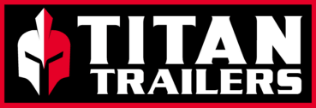Finding the Perfect Trailer: Determining the Right Size and Type for Your Needs
Selecting the right trailer involves careful consideration of several factors to ensure it meets your requirements and provides safe, efficient transport. Here’s a guide to help you determine the appropriate size and type of trailer for your needs.
Assess Your Hauling Needs
The first step in choosing a trailer is to clearly define what you will be hauling. Consider the following:
- Cargo Type: Are you transporting vehicles, equipment, livestock, or general cargo? The type of cargo will significantly influence the trailer choice.
- Weight: Determine the total weight of your cargo. Ensure that the trailer can handle the load without exceeding its weight capacity.
- Dimensions: Measure the length, width, and height of your cargo to ensure it fits within the trailer's dimensions.
Understand Trailer Types
Different types of trailers serve various purposes. Here are some common types to consider:
- Utility Trailers: Ideal for general-purpose hauling, such as moving furniture or landscaping equipment. They come in various sizes and can be enclosed or open.
- Enclosed Trailers: Provide protection from the elements and added security for valuable cargo. Perfect for transporting vehicles, tools, and other sensitive items.
- Flatbed Trailers: Great for large, heavy loads that don’t need protection from the weather. Suitable for equipment, building materials, and large machinery.
- Car Haulers: Specifically designed for transporting vehicles. They come in different configurations, including open and enclosed options.
- Livestock Trailers: Built to transport animals safely and comfortably. They include ventilation and non-slip flooring features.
Match the Trailer to Your Towing Vehicle
Ensure that your towing vehicle can safely pull the trailer and its load. Check the following:
- Towing Capacity: Refer to your vehicle’s manual to find its maximum towing capacity. Do not exceed this limit.
- Hitch Type: Make sure the trailer’s hitch is compatible with your vehicle’s hitch system.
- Braking System: Larger trailers may require a braking system to assist with stopping. Confirm that your vehicle can support this feature if needed.
Consider Additional Features
Depending on your specific needs, you may require additional features on your trailer:
- Ramp or Lift: If you’re loading heavy equipment or vehicles, a ramp or hydraulic lift can be essential for easy loading and unloading.
- Tie-Down Points: Secure your cargo with adequate tie-down points to prevent shifting during transport.
- Interior Lighting: For enclosed trailers, interior lighting can be crucial for visibility when loading and unloading in low-light conditions.
Evaluate Quality and Durability
Investing in a high-quality trailer ensures longevity and reliability. Look for the following:
- Frame Construction: Opt for trailers with sturdy frames made from durable materials like steel or aluminum.
- Flooring: Ensure the flooring material is robust enough to handle the weight and type of cargo.
- Maintenance: Check for trailers that offer ease of maintenance with features like grease fittings and rust-resistant coatings.
Conclusion
Determining the right size and type of trailer for your needs involves assessing your hauling requirements, understanding the various types of trailers, and ensuring compatibility with your towing vehicle. By carefully considering these factors, you can make an informed decision and choose a trailer that will serve you well for years to come. At Titan Trailers, we offer a wide range of trailers to suit all needs. For expert advice and a comprehensive selection, contact us at 204-371-8966 or visit our location at 34013 Freidensfeld Dr, Steinbach, MB P.O. Box 385 Steinbach MB R5G 1M3. Let us help you find the perfect trailer for your needs.
